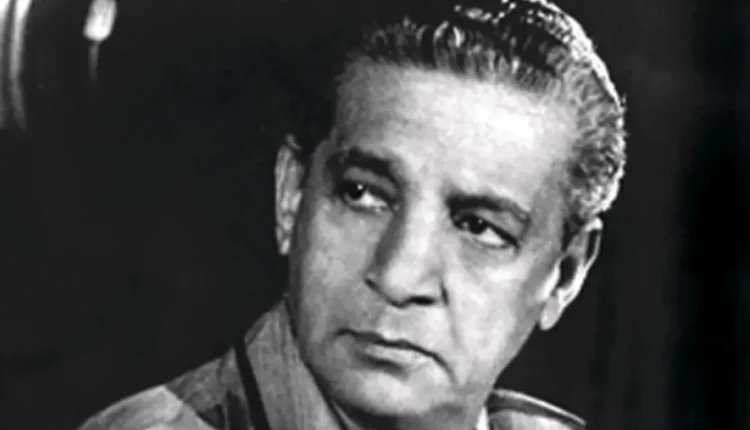In the rich tapestry of global cinema, few names have echoed with as much resonance in their homeland as Rattana Pestonji. Hailed as the father of contemporary Thai film, his story is not merely one of artistic triumph but of unwavering dedication, bold innovation, and an undying passion for storytelling through the lens. Though his life was cut short at a pivotal moment in cinematic history, his legacy continues to shape the heart and soul of Thailand’s film industry.
Rattana Pestonji: A Childhood Framed in Curiosity and Craft
Born in Bangkok to Indian-Parsi parents, Rattana Pestonji exhibited a fascination with photography from a remarkably young age. His knack for dismantling and reassembling cameras wasn’t just a boyhood hobby—it was a foreshadowing of his future genius. Encouraged by his family, he pursued engineering at the University of London. But even amidst studies, his artistic instincts led him to excel in photography competitions, picking up awards that hinted at the master cinematographer he was becoming.
From Film Salesman to Award-Winning Filmmaker
Returning to Thailand armed with an engineering degree, Rattana Pestonji’s journey took a detour when he found himself working as a film salesman. This detour, however, proved to be destiny in disguise. He delved into the then-nascent world of Thai cinematography and in 1937, made his directorial debut with a short film titled Tang, which won acclaim at the Amateur Cine Competition in Glasgow—presented by none other than Alfred Hitchcock himself.
Another short, White Boat (1939), made its way to the New York World Festival, signaling that Rattana Pestonji was not just another filmmaker; he was a harbinger of Thai cinema’s international breakthrough.
Championing Innovation Against All Odds
Rattana Pestonji was not one to conform. While Thailand’s film industry at the time relied heavily on post-dubbed 16 mm productions, Rattana insisted on working with 35 mm film—costlier, technically demanding, but offering unmatched audiovisual fidelity. This was a game-changing decision. With the film Santi-Vina, for which he served as cinematographer, Thailand earned global recognition by sweeping major awards at the 1954 Asia Pacific Film Festival in Tokyo.
Yet, this success came with consequences. Upon his return, the Thai government penalized him with heavy taxes and fines, illustrating the uphill battle he continually faced. But Rattana never backed down. His goal was not just to make films—it was to elevate Thai cinema to the international stage.
Masterpieces That Redefined Thai Film
With films like Country Hotel, Dark Heaven, and Black Silk, Rattana Pestonji created a new language in Thai filmmaking. Country Hotel, shot entirely on a single set with a single camera, was a masterclass in narrative economy and suspense—an homage to Hitchcock’s own Rope. Black Silk, widely considered Thailand’s first film noir, was a haunting exploration of morality and mystery, and perhaps Rattana’s greatest artistic triumph. He wrote, directed, produced, shot, and edited it himself—a one-man filmmaking army.
His final film, Sugar Is Not Sweet (1965), was a visually audacious romantic comedy inspired by Western pop art. Though filled with color and charm, it masked Rattana’s growing concerns about the industry’s direction.
The Tragic Silence of a Pioneer
On August 17, 1970, during a pivotal speech aimed at rallying governmental support for a domestic film industry threatened by Hollywood imports, Rattana Pestonji collapsed mid-sentence. He passed away just hours later—his last moments spent fighting for the future of Thai cinema.
Rattana Pestonji wasn’t just speaking for himself. He was speaking for generations of filmmakers to come.
Legacy Beyond the Lens
Though Rattana Pestonji’s films did not enjoy commercial success in their time—largely due to their tragic endings and experimental nature—his influence runs deep in the veins of modern Thai cinema. The establishment of the Thai Film Promotion Board shortly after his death was a direct outcome of his advocacy.
Today, his studio, Hanuman Films Company, lives on through his sons under the name Santa International Film Productions, supporting both domestic and international film ventures. His original masterpiece Santi-Vina, once thought lost, was rediscovered and restored for screening at the 2016 Cannes Film Festival.
His influence has transcended generations, inspiring modern Thai auteurs like Wisit Sasanatieng, whose Tears of the Black Tiger received international acclaim at Cannes, citing Rattana as a formative influence.
A Name That Lives Forever
In recognition of his monumental contributions, the top prize at the Thai Short Film and Video Festival is named the R. D. Pestonji Award. He was also posthumously honored with a Lifetime Achievement Award at the 2004 Bangkok International Film Festival.
Also Read : Ammar Siamwalla: Thailand’s Voice of Economic Reason and Rural Development

